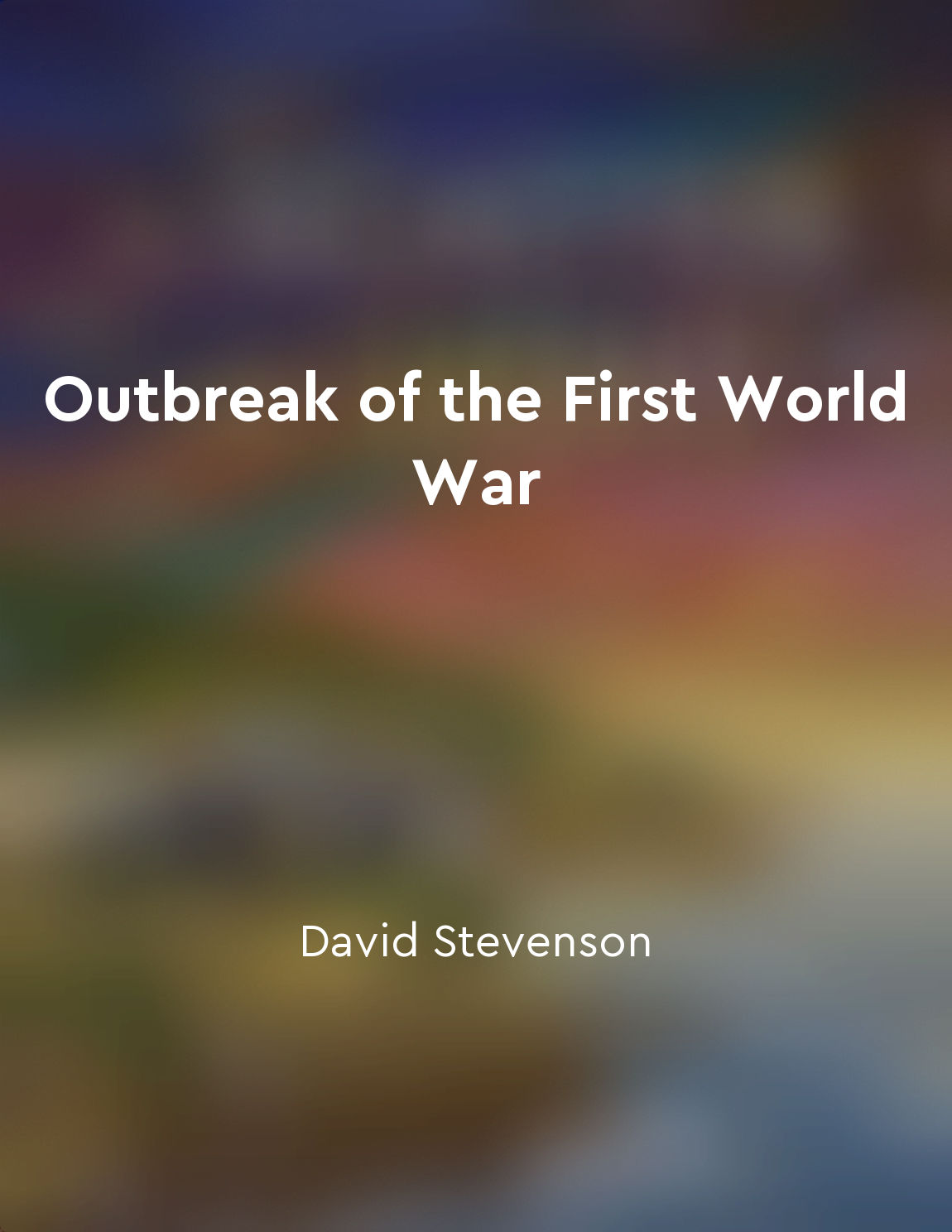Rebuilding of shattered nations from "summary" of Outbreak of the First World War by David Stevenson
The aftermath of the First World War left a trail of destruction across Europe, with nations shattered and in need of rebuilding. The scale of devastation was staggering, with millions dead, cities in ruins, and economies in tatters. The task of rebuilding these shattered nations was monumental, requiring not just physical reconstruction but also social, political, and economic revitalization. The Treaty of Versailles, signed in 1919, sought to address the issue of rebuilding by imposing harsh reparations on Germany and redrawing the map of Europe. The treaty aimed to punish Germany for its role in the war and prevent future conflicts by restructuring the balance of power on the continent. However, the terms of the treaty were controversial and ultimately failed to prevent the outbreak of another world war just two decades later. Rebuilding shattered nations was not just about repairing physical damage but also about addressing the underlying causes of the conflict. Nationalism, militarism, imperialism, and alliances had all played a role in sparking the First World War, and addressing these root causes was essential to prevent future conflicts. The League of Nations was established as a means of promoting international cooperation and preventing war, but its effectiveness was limited by the absence of major powers like the United States and the Soviet Union. The concept of rebuilding shattered nations was not just about reconstructing buildings and infrastructure but also about rebuilding trust, relationships, and institutions. The war had left deep scars on the psyche of Europe, with suspicion, resentment, and anger lingering long after the guns fell silent. Rebuilding required not just physical resources but also moral and emotional support to heal the wounds of war and forge a path towards a more peaceful future.- The concept of rebuilding shattered nations after the First World War was a complex and multifaceted task that required addressing not just the physical destruction but also the underlying causes of the conflict. The efforts to rebuild Europe in the aftermath of the war were ultimately insufficient in preventing another global conflict, highlighting the challenges and complexities of post-war reconstruction.


